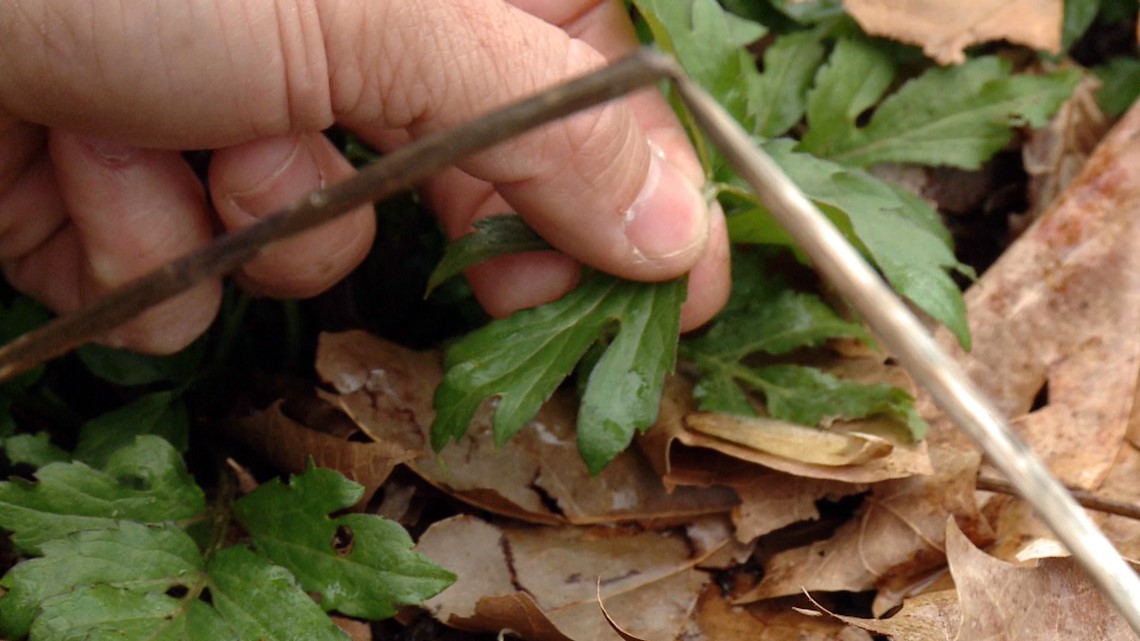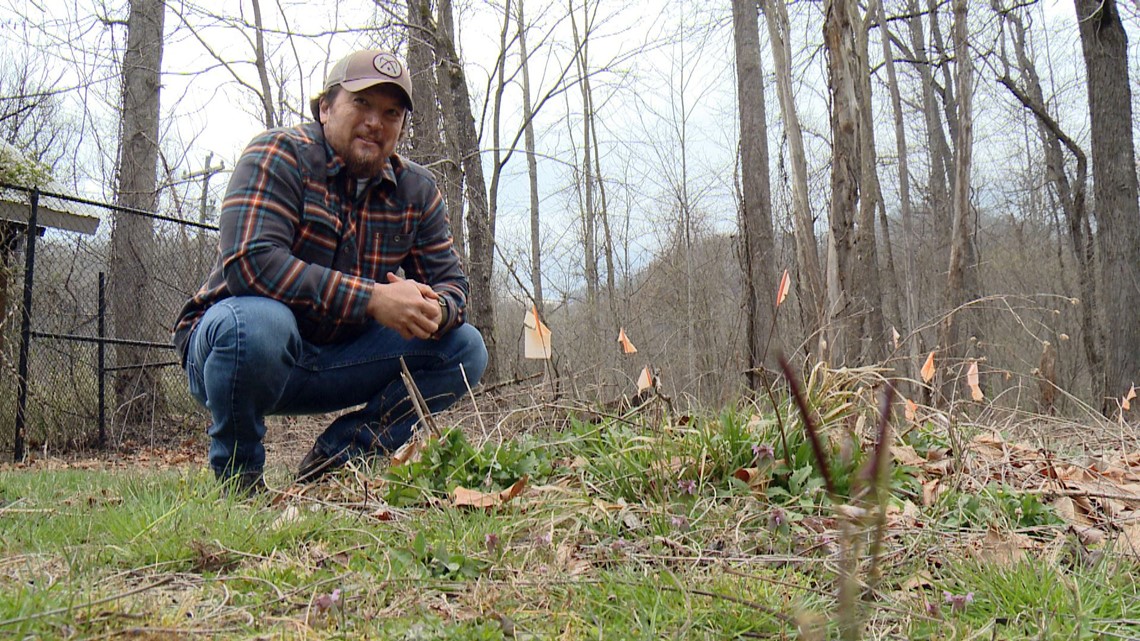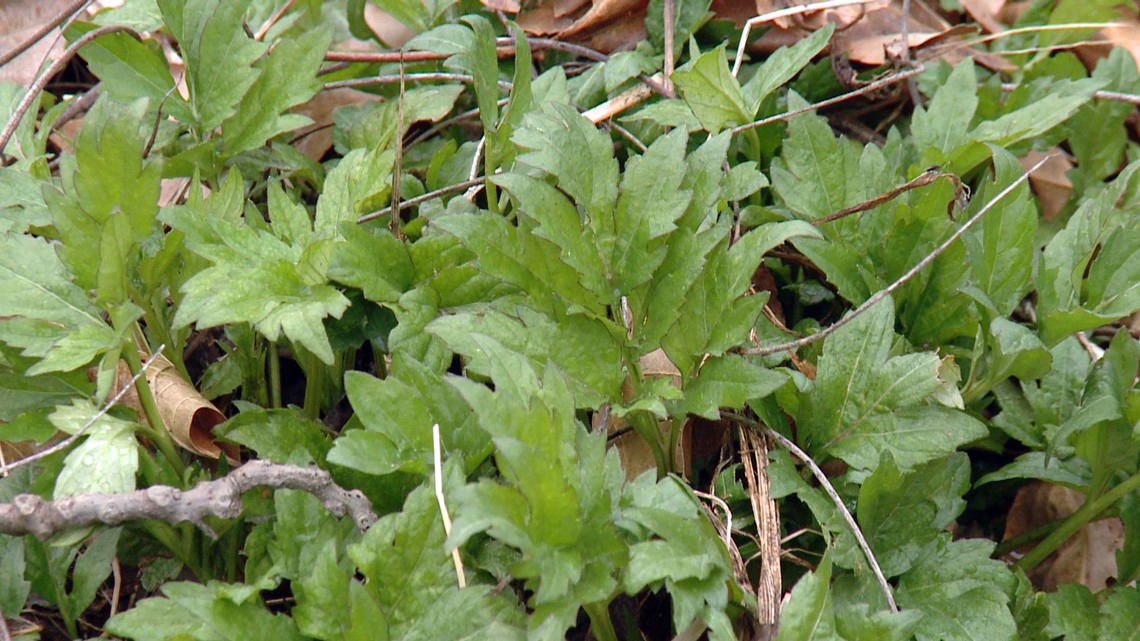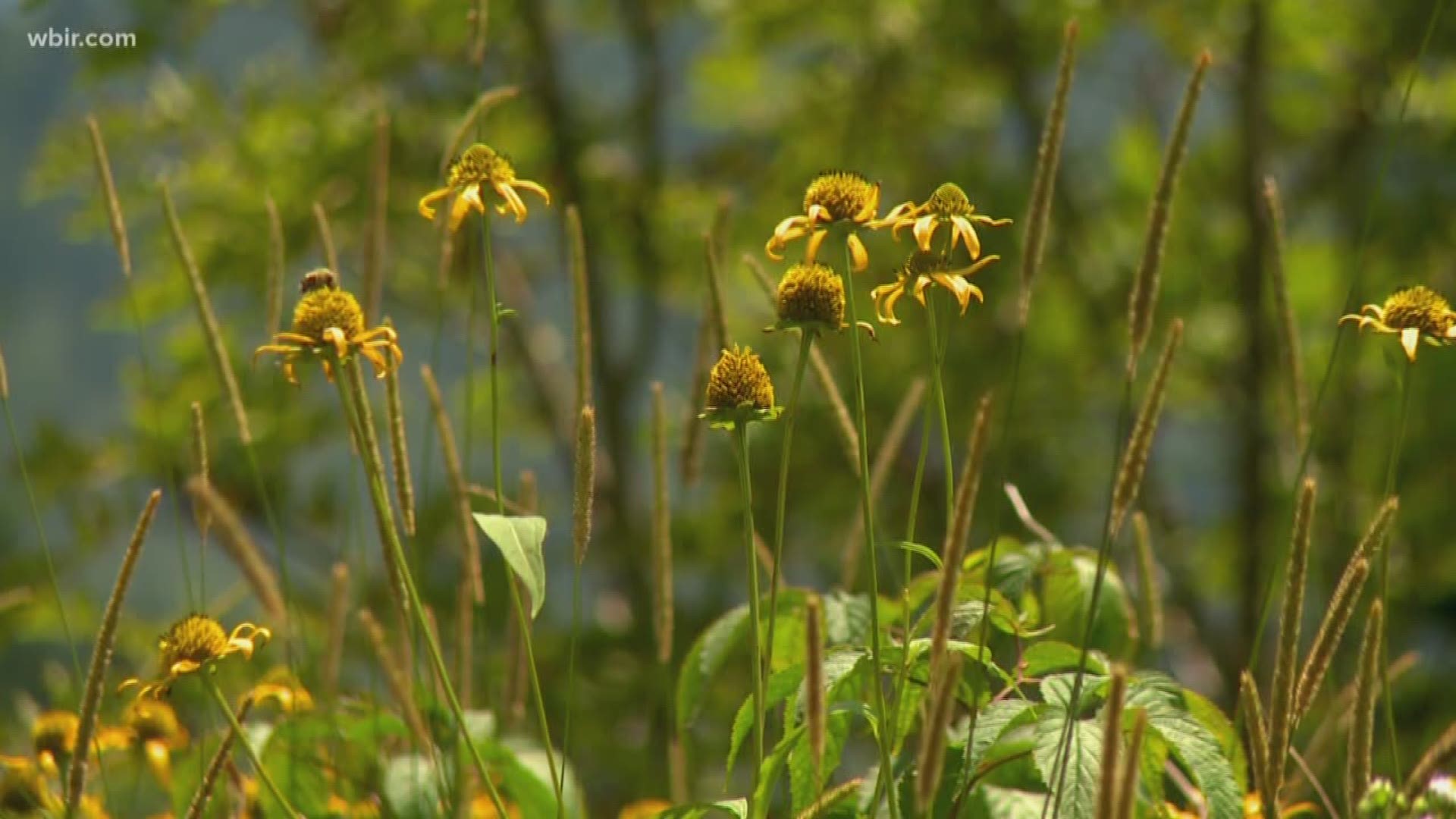CHEROKEE, N.C. — As you drive into the Great Smoky Mountains National Park, large signs clearly indicate "picking plants prohibited." Now the park has created a historic exception to the rule.
Monday morning the National Park Service signed an agreement with the Eastern Band of the Cherokee Indians (EBCI) that allows the tribe to harvest part of the sochan plant.
Tommy Cabe, the EBCI forest resource specialist, says picking part of the tender green leaves from the sochan plant is a Native American family tradition.


"I have picked sochan since I was about 8 years old. I went with my mother and my aunts down below my grandmother's house along the river. You find a lot of sochan along river banks and creeks," said Cabe. "It is kind of like a celebration of spring."
The plant flourishes on more than half a million acres that comprise the Great Smoky Mountains National Park, but the land remained off limits to the tribe.
The plant is easy to spot in late-summer with its large yellow blooms. The flowers are not what the Cherokee want.
"The end of the leaf that looks like a turkey foot, that is the ideal part of the plant that is harvested. You only remove that part of the leaf and you leave the rest," said Cabe. "You want it in the spring when it is tender, because it gets bitter the larger the leaf gets. It kind of tastes like a cross between kale and spinach It is delicious and it's really good for you."


Cabe said by only taking part of the leaf, the plant remains alive. The practice is entirely sustainable.
The agreement with the park puts limits on how much the Cherokee can harvest. The tribe gets 36 permits. Those individuals can go with their families to harvest sochan in March, April, and May within a specified distance of certain trails and roads. The permitted harvesters are given specially marked bags that clearly show they are allowed to collect the plant. Each permit holder can only harvest one bushel per week.
Cabe will also be helping the National Park Service conduct scientific research on the harvest by picking in specified areas of Tennessee. He says he savors the chance to collect more sochan and preserve a historic piece of culinary culture for the Cherokee.
"This is a privilege that will allow us to teach our kinds to be mindful of these landscapes. It allows us to regain a relationship with a landscape where we once belonged."


The agreement, which marks a historic change by allowing the tribe to harvest a culturally-significant plant inside the park boundary, was made at the Oconaluftee Visitor Center Monday. Park Superintendent Cassius Cash and Principal Chief Richard Sneed were joined by tribal council members as they signed the agreement.
“The signing of this agreement allows both governments to strike a better balance in honoring the rich Cherokee Indian traditions and also continuing to protect these very special resources for future generations,” said Superintendent Cassius Cash.
A ruling two years ago changed the policy of the National Park Service by allowing parks to enter agreements with federally-recognized tribes to allow culturally-significant harvesting.


According to the release from the NPS, through the Environmental Assessment process, managers determined there would be no significant impact resulting from sochan gathering by a limited number of permitted tribal members utilizing traditional gathering techniques.
The park said it will monitor populations in harvest zones and non-harvest zones to assess sochan abundance, sochan population health, and incidental impacts of harvesting such as trampling.
ECBI and the park will also meet frequently throughout the gathering period to discuss monitoring results and adjust the terms of the agreement if necessary to limit any unforeseen impacts, the release said.

